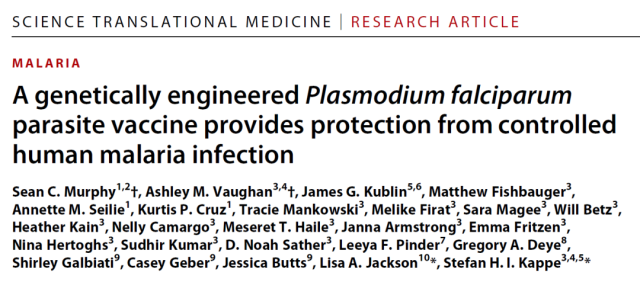Let mosquitoes become the syringes and help human to vaccinate against malaria
- Normal Liver Cells Found to Promote Cancer Metastasis to the Liver
- Nearly 80% Complete Remission: Breakthrough in ADC Anti-Tumor Treatment
- Vaccination Against Common Diseases May Prevent Dementia!
- New Alzheimer’s Disease (AD) Diagnosis and Staging Criteria
- Breakthrough in Alzheimer’s Disease: New Nasal Spray Halts Cognitive Decline by Targeting Toxic Protein
- Can the Tap Water at the Paris Olympics be Drunk Directly?
Let mosquitoes become the syringes and help human to vaccinate against malaria
- Should China be held legally responsible for the US’s $18 trillion COVID losses?
- CT Radiation Exposure Linked to Blood Cancer in Children and Adolescents
- FDA has mandated a top-level black box warning for all marketed CAR-T therapies
- Can people with high blood pressure eat peanuts?
- What is the difference between dopamine and dobutamine?
- How long can the patient live after heart stent surgery?
Science sub-journal: Let mosquitoes become the syringes and help human to vaccinate against malaria
Malaria is caused by the continuous proliferation of Plasmodium falciparum in human red blood cells and is mainly transmitted through mosquito bites .
Malaria has long been raging in tropical developing countries such as Africa, southern Asia and South America, causing great casualties and economic losses.
The discovery and use of artemisinin and its derivatives have saved tens of millions of lives, for which Tu Youyou won the 2015 Nobel Prize in Physiology or Medicine.
However, malaria remains a major public health problem worldwide. Nearly 3.2 billion people in 89 countries are at risk of contracting malaria, which is almost half of the world’s population. Malaria is documented every year.
There have been more than 200 million infections and 400,000 deaths, most of them children .
In recent decades, scientists have been working to develop anti-malarial vaccines, hoping to eliminate malaria from the root and build a malaria-free world, but these efforts have not achieved good results.
On August 24, 2022, researchers from the University of Washington and other institutions published a research paper entitled: A genetically engineered Plasmodium falciparum parasite vaccine provides protection from controlled human malaria infection in Science Translational Medicine , a subsidiary of Science .
The study developed an experimental malaria vaccine called ” PfGAP3KO ” that knocked out three genes in the malaria-causing pathogen Plasmodium falciparum — P52 , P36 and SAP1 — that are critical for the parasite’s ability to establish the early stages of infection critical.
Plasmodium parasites knocked out of these three genes can be used as an attenuated vaccine to help the body’s immune system fight against malaria.
The vaccine was administered in an “interesting” way, directing mosquitoes carrying the knockout parasite to the skin, with approximately 200 bites per bite, 3-5 inoculations , and then assessed against controlled human malaria infection ( CHMI) protection. The results showed that half of the vaccinated people had no detectable malaria infection. This result supports the further development of an attenuated malaria vaccine based on genetic engineering.

Currently, multiple laboratories are designing live attenuated malaria vaccines using different approaches, such as exposing the parasite to radiation or screening for antimalarial drugs. The emergence of gene editing technology provides a new option for the development of malaria vaccines.
As malaria cases and deaths continue to rise in regions such as Africa and southern Asia, the need for an effective malaria vaccine is becoming more urgent.
This is partly due to the development of resistance to insecticides and antimalarial drugs in the mosquitoes and parasites that transmit malaria.
After a mosquito carrying Plasmodium bites a human, the sporozoites of the malaria parasite will enter the human body with the mosquito’s saliva and invade the liver cells with the bloodstream, and then reproduce asexually in the liver cells and produce a large number of merozoites. This stage does not produce symptoms .
The merozoites then cause liver cells to rupture, and the merozoites enter the bloodstream and invade red blood cells, which can be debilitating and even life-threatening.
At this point, they transmit the malaria parasite to the mosquitoes that bite them, and through the mosquitoes they spread the malaria to others.
Scientists therefore hope to design a malaria vaccine that would allow the immune system to destroy the parasites before they enter liver cells, or to destroy already infected liver cells, preventing malaria from progressing to the stage of infecting red blood cells.
In this latest study, the research team tested the safety, tolerability and immune profile of the PfGAP3KO malaria vaccine in humans, as well as its protective efficacy in those who had not previously been exposed to malaria.
The vaccine uses mosquitoes as ” mini flying syringes ” that carry attenuated Plasmodium parasites with three genes knocked out, and then let the mosquitoes bite the skin of the arm to vaccinate.
 Sean Murphy, lead author of the paper, lets mosquitoes bite to vaccinate himself
Sean Murphy, lead author of the paper, lets mosquitoes bite to vaccinate himself
The team found that the vaccine induced protection from a subsequent “challenge” of malaria infection, and the vaccine elicited antibodies that blocked infection with Plasmodium sporozoites.

Follow-up work will evaluate the efficacy of the vaccine in trials to determine a range of doses, the team said.
One of the limitations of the study is that the vaccine, delivered by mosquito bite, cannot determine the exact dose delivered.
In addition, the study did not test whether the vaccine induces a specific T-cell response against the malaria parasite, nor did it compare the effect of the vaccine with other malaria vaccines.
Paper link :
https://www.science.org/doi/10.1126/scitranslmed.abn9709
Let mosquitoes become the syringes and help human to vaccinate against malaria
(source:internet, reference only)
Disclaimer of medicaltrend.org
Important Note: The information provided is for informational purposes only and should not be considered as medical advice.



